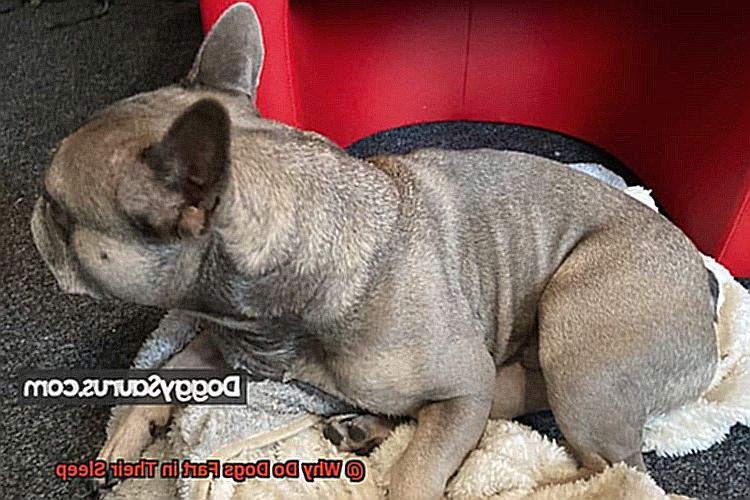Why Do Dogs Fart in Their Sleep?
Do you ever hear your dog snoring, only to be disrupted by a loud and smelly fart? If so, you’re probably wondering: why do dogs fart in their sleep?
There are many factors that could be causing this, from dietary changes to digestive issues.
In this blog post, we’ll take a closer look at why dogs pass gas while sleeping, how it can affect their health, and what you can do to help minimize the odor.
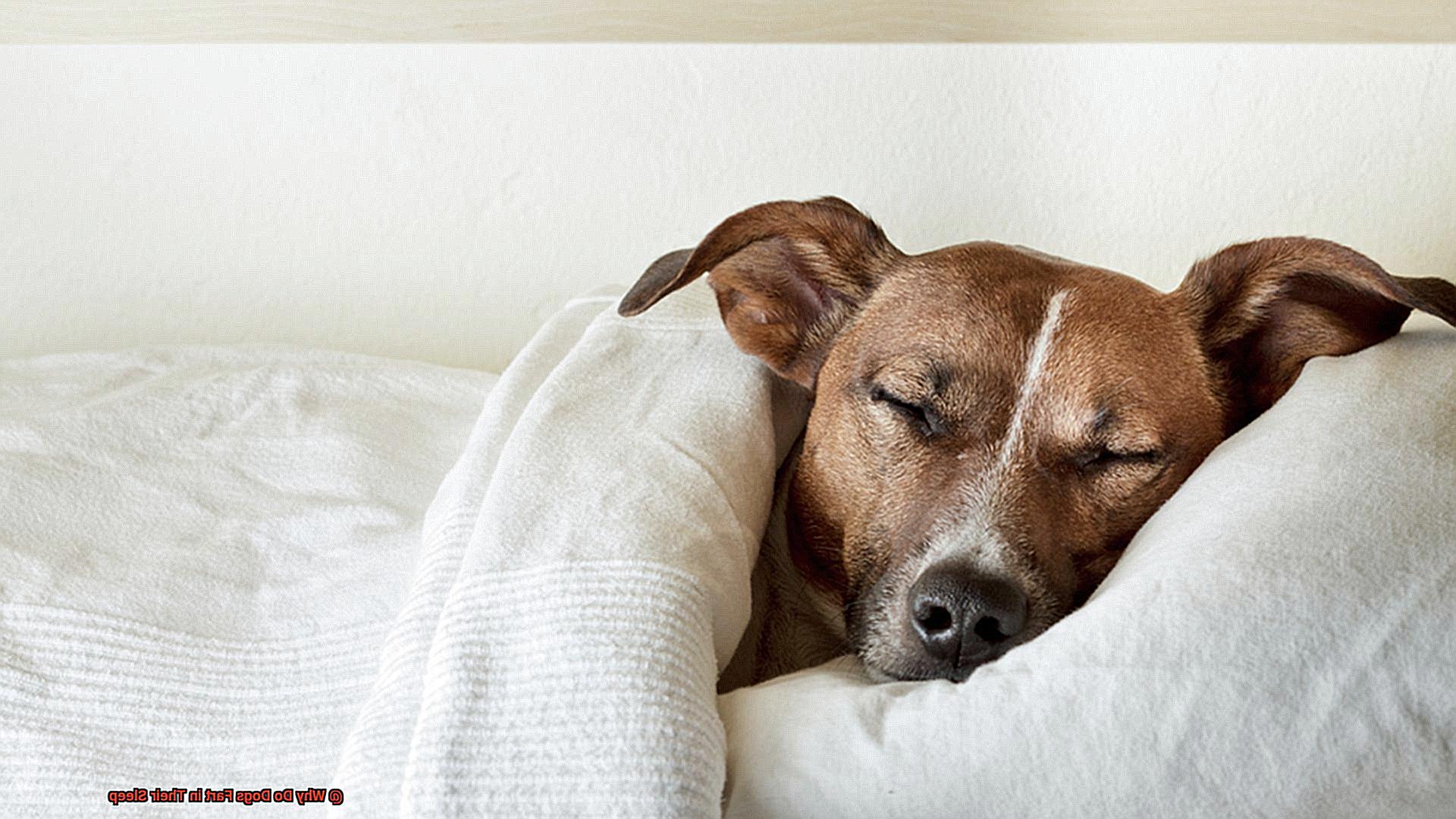
So if you’re asking yourself “Why do dogs fart in their sleep?”, keep reading for more information.
Can Dogs Smell While Sleeping?
Contents
- 1 Can Dogs Smell While Sleeping?
- 2 Why Do Dogs Smell Like Fritos When They Sleep?
- 3 Why Does My Dog Fart So Much at Night?
- 4 How to Help a Gassy Puppy
- 5 What Dog Breeds Fart the Most?
- 6 Do Dogs Know When They Fart?
- 7 Why Does My Dog Fart So Much and Stink?
- 8 Common Causes of Excessive Flatulence in Dogs
- 9 Conclusion
Have you ever wondered if dogs can smell while they slumber? The answer is yes. Dogs have an amazing sense of smell and can detect odors from up to several miles away.
Even when they are in deep sleep, their olfactory senses are still active, albeit at a reduced level.
So, even though your pup may not be able to detect smells as effectively as when they are awake, if a strong odor is present in the environment, your furry friend may still be able to sniff it out.
Furthermore, dogs have an incredible ability to remember smells and will often wake up if they detect a familiar scent.
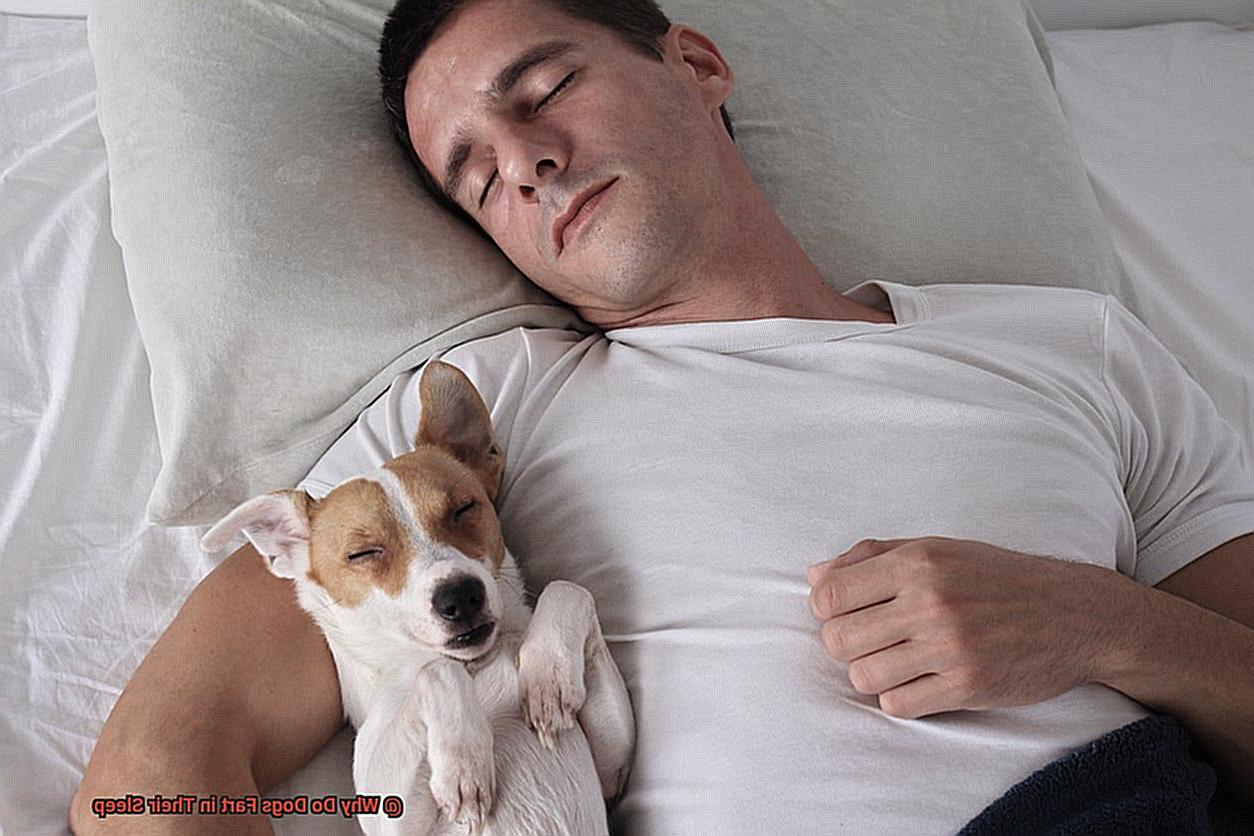
It’s almost like their noses act as a radar system, constantly scanning their surroundings for signs of danger or something familiar.
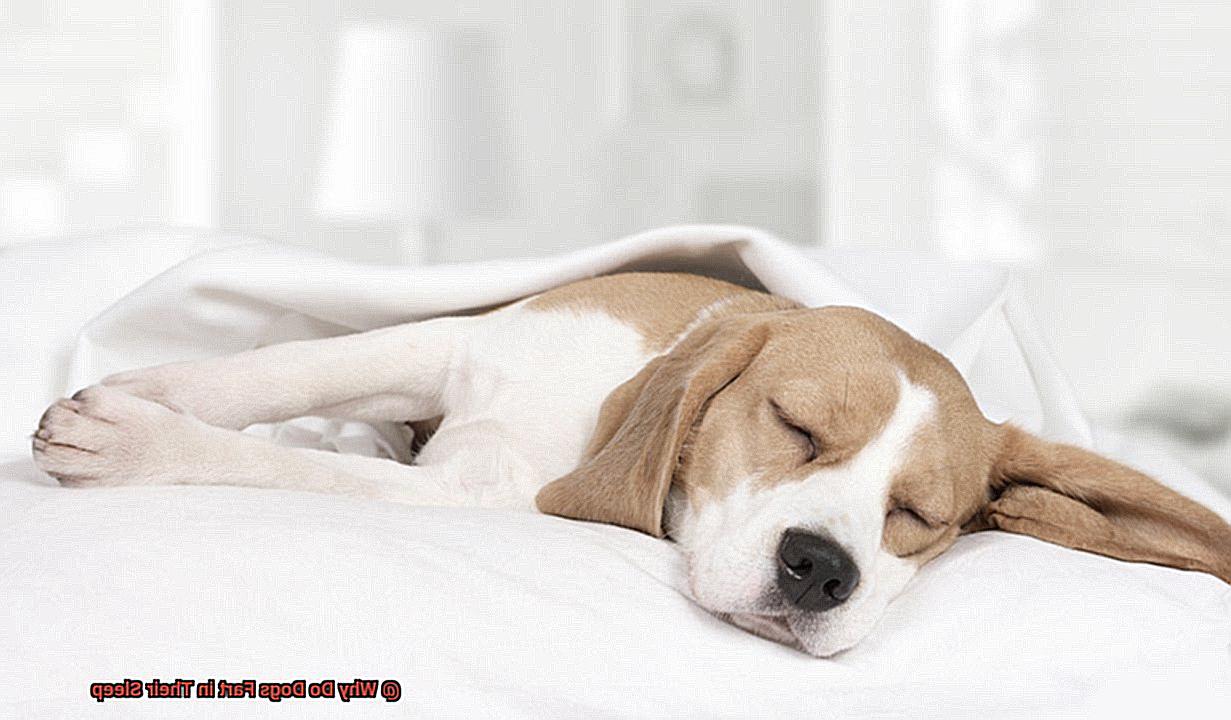
This is why dogs make such great watchdogs: their noses never take a break.
Why Do Dogs Smell Like Fritos When They Sleep?
It may seem strange, but there is actually a scientific explanation for this phenomenon.
When dogs sleep, they release gases from their digestive system which contain sulfur compounds.
These compounds can give off a Frito-like odor.
Additionally, dogs have anal glands that can release an odor when they are sleeping.
Bacteria in their fur can also contribute to the smell.
It’s important to remember that some dogs may naturally have a stronger odor than others, so if you’re concerned about your pup’s smell, it’s best to consult with your vet.
To help minimize Fritos’ odor, make sure you’re regularly brushing and bathing your dog.
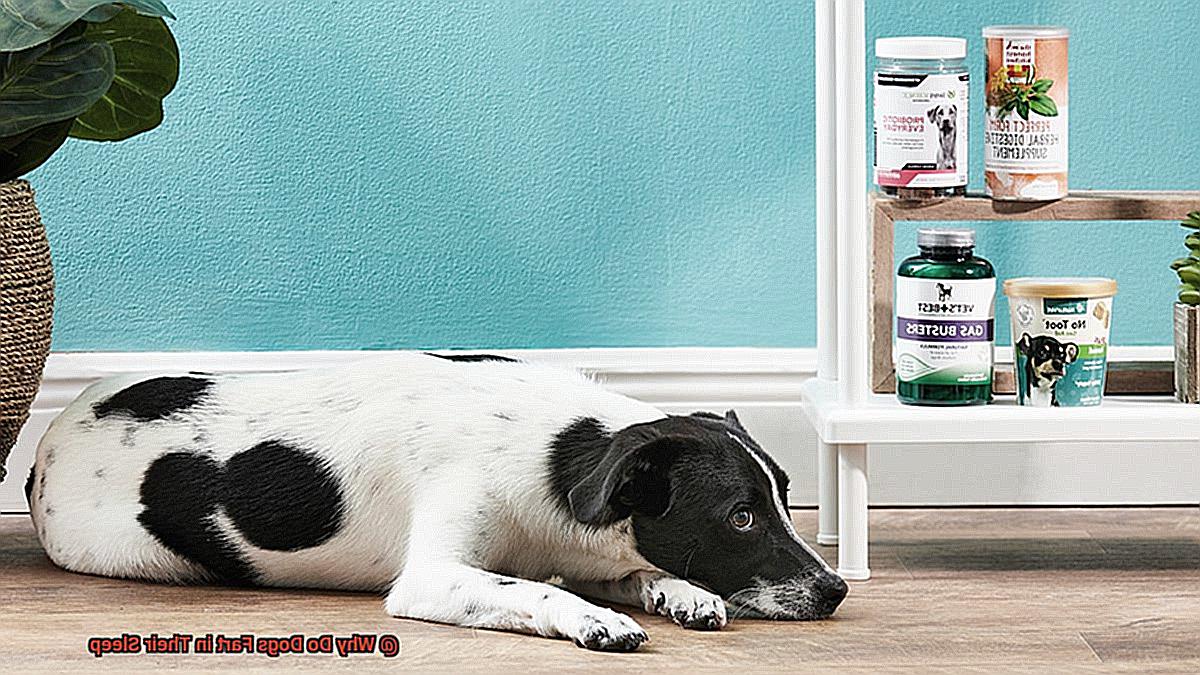
Why Does My Dog Fart So Much at Night?
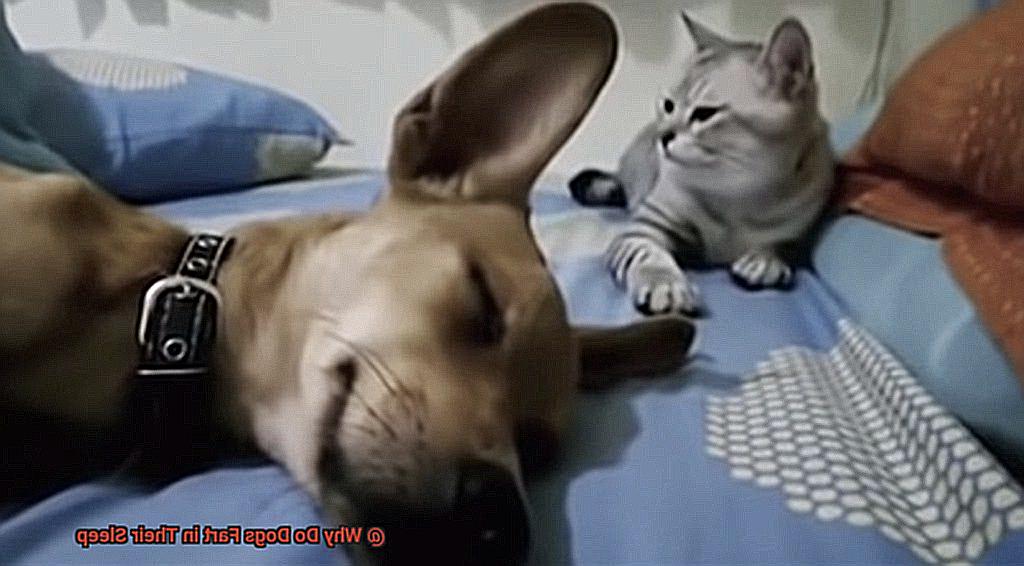
Dogs tend to fart more at night due to a variety of reasons, but there are ways to reduce it.
When dogs are in a relaxed state, like when they’re sleeping, their digestive system slows down and produces more gas.
This is compounded by the fact that sleeping dogs eat less food than when they’re awake.
Certain breeds of dogs may also be more prone to flatulence than others due to their anatomy and genetics.
If your dog is experiencing gastrointestinal distress or has an underlying medical condition such as irritable bowel syndrome, this can also be a contributing factor.
Stress and anxiety can also cause increased flatulence in dogs, especially if they are not used to sleeping in a new environment or with new people.
Fortunately, there are ways to reduce the amount of gas your pup produces at night.
Feeding your dog high fiber foods or switching to a hypoallergenic diet can help minimize the amount of gas produced by your furry friend.
Additionally, making sure your dog gets enough exercise throughout the day can help them sleep comfortably at night without as much gassiness.
How to Help a Gassy Puppy
Having a gassy puppy can be quite amusing, but it can also indicate an underlying health issue.
If your pup is having excessive flatulence, there are some steps you can take to minimize the amount of gas they produce.
Here’s how to help a gassy puppy.
Identify the Cause
The first step is to identify the underlying cause of your pup’s gassiness.
This could be due to an unhealthy diet, a food allergy, or a digestive disorder.
Feed Smaller Meals
Feeding your puppy smaller meals throughout the day will help reduce the amount of air he swallows while eating and can help reduce gas usage.
Consider switching to a higher-quality food with fewer additives or preservatives that could be causing digestive issues.
Add Probiotics
Adding probiotics to your pup’s diet will promote healthy digestion and gut health, as well as reducing gas and bloating in puppies.
This is an easy and effective way to keep your pup healthy and happy.
Exercise Regularly
Exercising regularly helps keep your pup’s digestive system active which can help reduce gas buildup in their stomach and intestines.
Whether it’s taking them on regular walks or playing with them in the backyard, exercise is key for their health.

Monitor Your Pup’s Health Closely
It’s important to monitor your pup’s health closely – if you notice any changes in his behaviour or appetite, make sure to take him to the vet for a checkup as soon as possible.
This will ensure that any potential health issues are identified early on so that they can be addressed quickly and effectively.
What Dog Breeds Fart the Most?
The answer might surprise you. While all dogs are capable of passing gas, certain breeds are more prone to flatulence than others.
Smaller pooches, such as Chihuahuas, Pomeranians and Dachshunds, have higher levels of flatulence due to their faster metabolism.
Labrador Retrievers, Golden Retrievers, German Shepherds and Bulldogs can all let one rip too. Brachycephalic breeds (those with short noses) like Pugs, Boston Terriers and Bulldogs are even more likely to pass gas due to their digestive system.
In some cases, food intolerance or allergies may also be responsible for excessive farting.
If your pup is having a problem with their flatulence it may be time to visit the vet for some tests.

No matter what breed your pup is, they all have their own personalities and quirks – including who farts the most.
Do Dogs Know When They Fart?
Absolutely. Dogs have a remarkable sense of smell, significantly more powerful than humans.
So, even if your pup doesn’t understand why it’s happening, it will certainly be aware when it does.
Furthermore, dogs can detect the farts of other animals and even other dogs.
That’s why you often see them curiously sniffing each other’s behinds while they meet.
Moreover, some dogs may even be able to recognize the sound of their own flatulence and associate it with something unpleasant or embarrassing.
Have you ever noticed your dog looking a little sheepish after passing gas? It could be because they know precisely what just happened.
Also, some dogs can even smell the odour of their own flatulence in the air, which could explain why some pooches appear to be trying to conceal their farts by lying down or quickly moving away from them.
It’s almost as if they’re attempting to hide the truth.
So there you have it: your dog knows when it farts and isn’t afraid to show its shame at times.
Why Does My Dog Fart So Much and Stink?
Do you ever wonder why your pup’s flatulence is so pungent? Many dog owners may be asking themselves this very question.
Sadly, dogs can’t control their flatulence as much as humans can, which means they naturally produce more gas than us.
This can lead to more smelly farts.
Furthermore, a pup’s diet may also contribute to the malodorousness of their flatus.
Foods that are high in fat and protein can cause more odiferous farts due to the breakdown of the food in the digestive system.
Stress and anxiety can also cause a dog to fart more, leading to a smellier fart.
Dogs may become stressed due to changes in their environment or routine, or even separation anxiety when left alone for too long.
Certain health conditions such as gastrointestinal disease or infection may also cause a dog’s farts to become smellier than normal.
If you suspect your pooch may have an underlying health condition, it is important to take them to the vet for an examination and diagnosis.
In conclusion, there are several reasons why your canine companion’s farts can be so smelly.
It could be due to diet, stress and anxiety, or even an underlying health condition, so it’s important to pay attention and watch out for any changes in your pup’s behavior or health that may indicate that something more serious is going on.
Common Causes of Excessive Flatulence in Dogs
Excessive flatulence in dogs is more than just a smelly nuisance – it may be an indication of an underlying health issue.
From dietary causes to gastrointestinal diseases, there are many potential sources of your pup’s excessive gas production.
High-fiber diets and legumes are common culprits when it comes to diet-related flatulence in dogs.
Stress can also lead to increased air swallowing, resulting in more gas.
Intestinal parasites, food allergies or sensitivities, and even certain breeds’ genetic predisposition to digestive disorders can all contribute to excessive flatulence.
If your pup’s gassy episodes become particularly frequent or unpleasant, it’s important to investigate the cause with your vet.
Conclusion
In conclusion, dogs may fart in their sleep due to a variety of factors, such as diet changes, anxiety, or underlying health issues.
To ensure your pup is healthy and happy, pay attention to their behavior and diet.
If you notice any changes or suspect something more serious is going on, consult your vet for an examination and diagnosis.
No matter the breed of dog you have, all puppies are capable of passing gas – some breeds just do it more than others.
